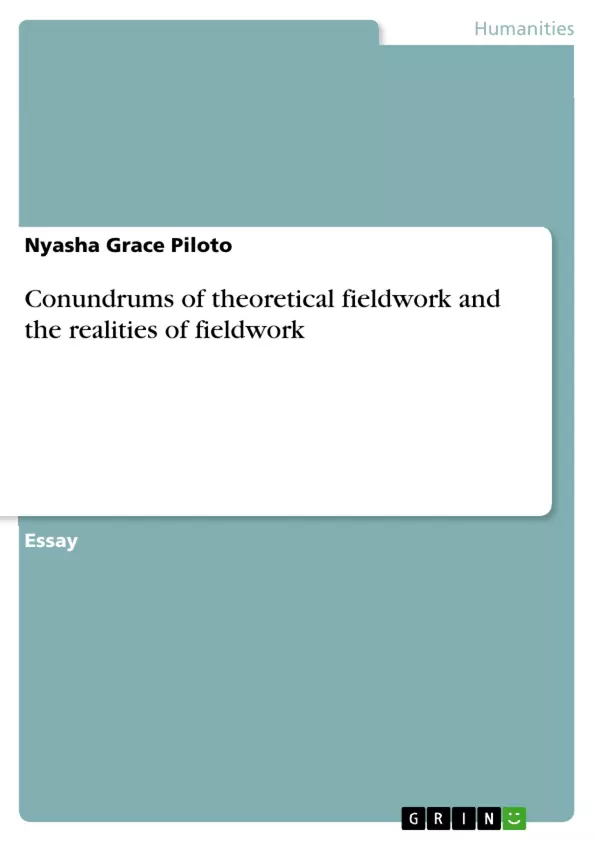In this narrative, I argue that anthropological theory and experienced fieldwork do not necessarily mirror each other, though theory is indeed necessary to equip one for the field. Indeed it is of paramount importance that student be equipped with the tools that are necessary for embarking into the field. However, from my own experience as a researcher, one may express that the experienced realities of fieldwork differ from learnt theories.
Inhaltsverzeichnis (Table of Contents)
- Entry into the field
- Embarking On an Ethnographic Journey – A Thick Description
- Sticking Out Like a Sore Thumb
Zielsetzung und Themenschwerpunkte (Objectives and Key Themes)
This narrative examines the disconnect between anthropological theory and the realities of fieldwork, highlighting the importance of theoretical frameworks while also acknowledging the challenges of applying them in practice. The author uses their own fieldwork experience in Qondwa village as a case study to demonstrate the complexities of conducting research in a foreign environment.
- The gap between theoretical frameworks and practical fieldwork experience.
- The importance of the researcher's body as a tool for data collection and observation.
- The challenges of navigating cultural taboos and language barriers in the field.
- The complexities of ensuring the safety and well-being of both the researcher and participants.
- The significance of thick description in ethnographic writing.
Zusammenfassung der Kapitel (Chapter Summaries)
The first chapter details the author's initial entry into the field, emphasizing the importance of personal connections and established networks. The author describes their initial encounter with the village and their reliance on existing outreach programs and volunteers to build rapport with potential informants. The chapter also introduces the concept of "thick description" and how it informs the author's methodology.
The second chapter delves into the complexities of conducting ethnographic research, particularly the challenges of navigating cultural taboos and language barriers. The author discusses the difficulties of obtaining information regarding childhood sexuality in a community where the topic is considered taboo, and the potential challenges of relying on translators.
The third chapter describes the author's arrival in the village and the initial challenges of navigating a new and unfamiliar environment. This chapter focuses on the author's anxieties and fears, emphasizing the importance of self-awareness and the role of the researcher's body in the research process.
Schlüsselwörter (Keywords)
This study focuses on the realities of conducting anthropological fieldwork, including the challenges of applying theoretical frameworks to practical situations, the role of the researcher's body in the research process, navigating cultural taboos and language barriers, and the importance of thick description in ethnographic writing.
Frequently Asked Questions
What is the main argument regarding anthropological theory and fieldwork?
The author argues that while theory is essential for preparation, the experienced realities of fieldwork often differ significantly from learned theoretical frameworks.
What does "thick description" mean in ethnography?
Thick description refers to a detailed and contextualized account of social actions and cultural practices, providing depth to ethnographic writing.
What challenges are mentioned regarding cultural taboos?
The researcher encountered difficulties obtaining information on sensitive topics like childhood sexuality in communities where such discussions are considered taboo.
How does the researcher's body play a role in data collection?
The researcher's presence, self-awareness, and physical experiences in an unfamiliar environment are analyzed as tools for observation and understanding social dynamics.
What is the significance of established networks in fieldwork?
The narrative highlights that relying on existing outreach programs and personal connections is crucial for building rapport with informants and entering the field safely.
- Citation du texte
- Master's of Social Science Nyasha Grace Piloto (Auteur), 2018, Conundrums of theoretical fieldwork and the realities of fieldwork, Munich, GRIN Verlag, https://www.grin.com/document/438255



